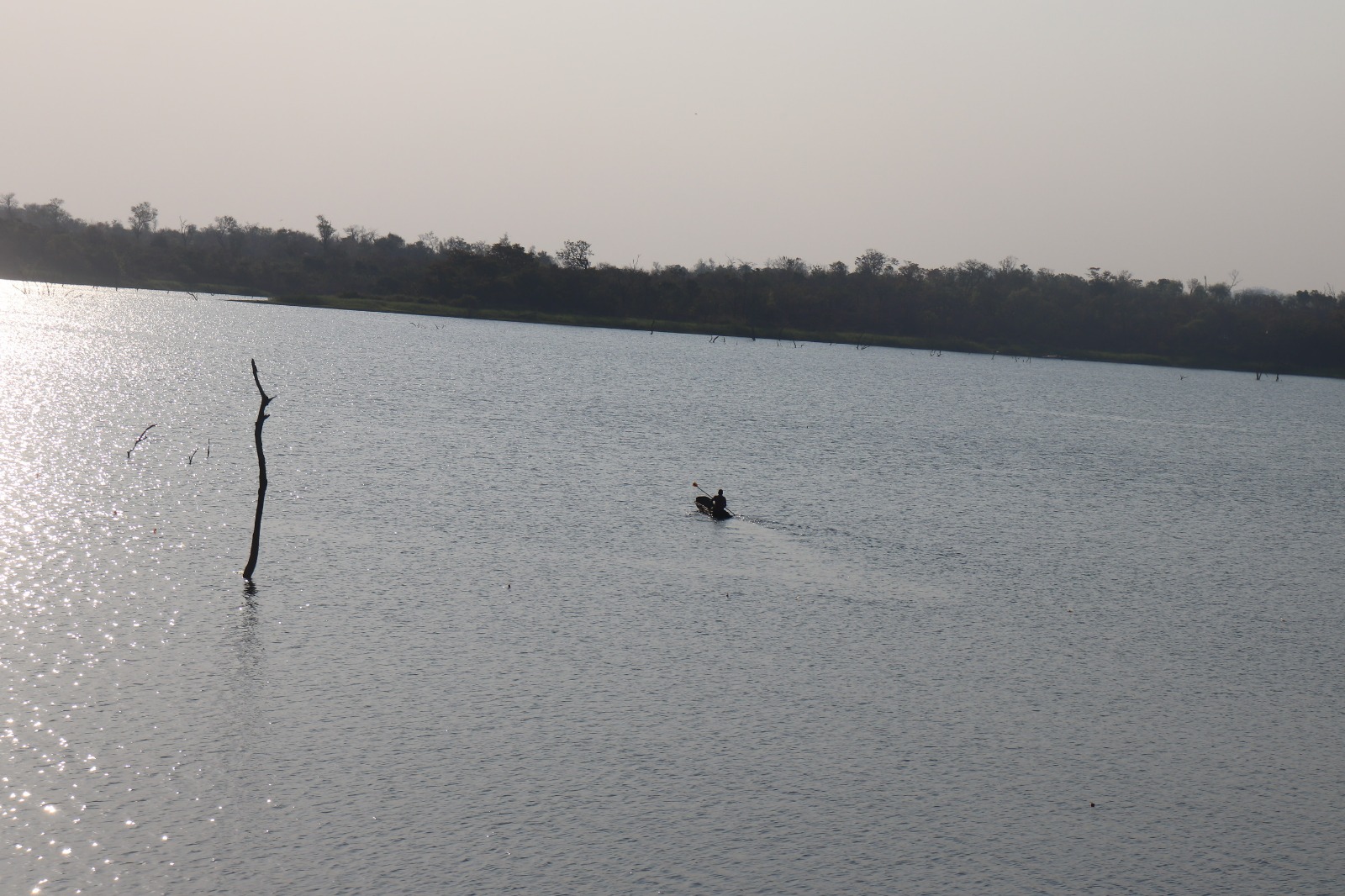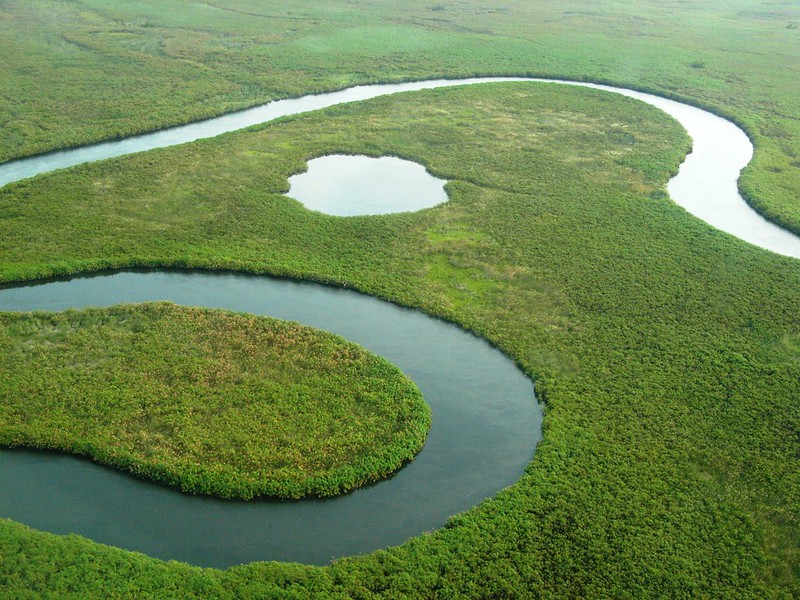New training facility to boost capacity for wildlife conservation in SADC Region
IUCN ESARO launched a new Training Facility for Wildlife Rangers and TFCA Managers at the KAZA Summit, aiming to enhance conservation efforts across the SADC region through the SADC TFCA Financing Facility.
IUCN (the International Union for Conservation of Nature) Eastern and Southern African Regional Office (ESARO) successfully launched the Training Facility for Wildlife Rangers and TFCA Managers. The event, held on the sidelines of the KAZA Summit, was officiated by Zambia’s Minister of Tourism, Hon. Rodney Sikumba. Attendees included Ministers of Environment and Tourism, or their representatives, from Angola, Botswana, Namibia, Zambia, and Zimbabwe—the five KAZA TFCA Partner Countries. Senior officials from the SADC Secretariat, the German Government, KfW, and conservation organisations working in KAZA TFCA were also present.
The Training Facility and Programme for Wildlife Rangers and TFCA Managers in the SADC Region is a regional initiative designed to provide needs-driven, workplace-related training for wildlife rangers and TFCA managers in specific conservation areas focused on transboundary conservation management. By joining fragmented wildlife habitats across international boundaries, this programme aims to maintain biodiversity, enhance the socio-economic conditions of rural communities through eco- and cultural tourism, and ensure the sustainable use of natural resources. The KAZA Heads of State Summit was the ideal platform for this launch as it is not only the largest TFCA in the SADC region but also the largest terrestrial Transfrontier Conservation Area in the world.
The programme begins with an inception phase from June to December 2024. Implementation will run from 2025 to 2028, during which funding will be disbursed to support the training of rangers and TFCA managers in selected courses to enhance their capacities and competencies. This programme is part of the broad German Development Cooperation with the SADC Secretariat. The German Government, through KfW, committed EUR 11 million towards ranger capacities for protected and conserved areas in TFCAs. The SADC Secretariat is working in partnership with IUCN for implementation of the Training Facility.
The SADC Secretariat remains dedicated to implementing the SADC Protocol on Wildlife and Law Enforcement through various strategies, including the TFCA Programme, Law Enforcement and Anti-Poaching (LEAP), and Wildlife-Based Economy Strategies. These efforts, approved by SADC Ministers in June 2023, underscore the region's commitment to sustainable wildlife management and conservation. This programme contributes towards the implementation of these strategies.
The desired outcomes of this Training Facility include:
-
Well-trained Wildlife Managers and Rangers: Ensuring sufficient numbers of capable park management staff, government agencies, community-based organisations, and local administrations in the SADC region.
-
Enhanced Training Venues and Equipment: Providing nearby access to in-field training venues and appropriate equipment for workplace and cost-efficient training.
-
Improved Training Infrastructure: Developing adequate infrastructure to improve the provision of workplace-related training in terms of quantity, effectiveness, and efficiency.
-
Sustainable Financing Mechanisms: Establishing a mechanism to finance and provide needs-driven, workplace-related training for wildlife management teams in specific conservation areas.
Hon. Rodney Sikumba remarked, “This training comes at an importantl time as we begin to guide our young men and women in Zambia towards careers as rangers. Effective protected conservation areas are essential for achieving world-class TFCAs and tourism destinations. By launching these training facilities for wildlife rangers and TFCA managers, we are sending a clear message that our governments are committed to the welfare of our rangers, who stand on the front lines to protect our natural capital."
SADC Secretariat represented by Domingos Gove noted, "This programme is part of the implementation of the Regional Indicative Strategic Development Plan 2020-2030. It aligns with the Protocol on Wildlife Conservation and Law Enforcement of 1999, which emphasises building national and regional capacity for wildlife management and conservation. This launch represents a significant step towards achieving these goals through cooperative efforts."
KfW Representative Christiane Laibach stated, “We firmly believe that the people that can be trained in the new program are at the core of transfrontier conservation and in the end, key for success. KFW have been involved in training schedules and programs and shaping institutions for some time on behalf of the German government t, starting with the Southern African Wildlife College. And since then, more than 200, 000 rangers and wildlife managers have been trained.”
The German Ambassador to Zambia H.E. Anne Wagner-Mitchell noted, "Germany has long been a committed partner in protecting and preserving wildlife, biodiversity, natural resources, and ecosystem services globally and regionally. Beyond supporting the KAZA TFCA, Germany is involved in various conservation initiatives in Zambia, including the SADC TFCA Financing Facility, the Legacy Landscape Fund, the IUCN Green List certification, and COVID-19 mitigation funding for TFCAs. Our holistic approach to conservation includes fostering community-based natural resource management, co-management arrangements, business models for national parks, promoting tourism and infrastructure development, and developing standards and procedures for cross-border operations in transfrontier conservation areas."
IUCN ESARO Regional Director Luther Anukur added, "The training programme underscores our commitment to enhancing the capacity of protected and protected area managers, rangers and other stakeholders in the SADC region by equipping them with the knowledge, skills and tools necessary for effectively conserving and managing these critical landscapes. We are investing in the long-term sustainability of our natural heritage and the well-being of local communities. The training programme is an opportunity for all of us to learn from each other, to extend ideas and best practices, and to forge lasting partnerships that will strengthen the resilience of protected areas in the SADC region."



